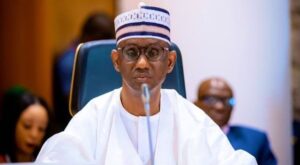Peter Obi, a former presidential candidate of the Labour Party, has expressed his concern over the alarming poverty rate in Nigeria. According to him, 75% of Nigerians are now living in extreme poverty, and he believes this issue is the result of years of poor decision-making by the government.
In a post shared on social media on Tuesday, Obi warned that Nigeria’s poverty situation is growing worse, mainly due to wrong priorities by the government in the past. He called for urgent action to address this crisis.
Obi urged all levels of government in Nigeria to redirect their focus towards crucial areas like healthcare, education, and poverty alleviation. He believes these areas should be prioritized to improve the lives of Nigerians.
The data from the World Bank paints a dire picture: over 75% of people living in rural Nigeria are now in extreme poverty as of April 2025. In urban areas, 41.3% of Nigerians also live below the poverty line. This shows that the poverty problem has expanded beyond rural areas and is now a nationwide crisis.
Obi pointed out that the current level of poverty is much higher than it was in previous years. In 2018/2019, about 30.9% of Nigerians were living below the extreme poverty line, according to the World Bank. By 2025, this number has more than doubled, signaling a severe decline in the country’s development.
He blamed the worsening poverty on the government’s misplaced priorities. Instead of investing in essential sectors like healthcare and education, the government has spent heavily on non-developmental projects such as building new government houses, guesthouses, and buying fleets of official cars.
Obi stressed that the key to Nigeria’s future growth lies in investing in people—by improving access to quality education, healthcare, and supporting small businesses. These actions will create jobs and help lift people out of poverty.
He concluded that the country must stop wasting money on unnecessary projects and focus on improving the lives of its citizens. According to Obi, the solution lies in human capital development, which will ultimately lead to national progress.







